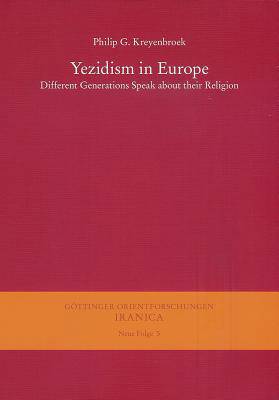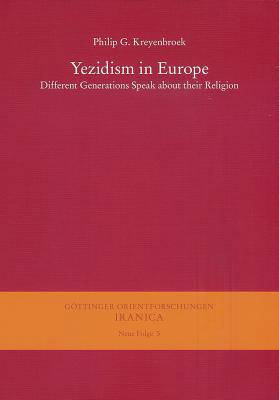
- Afhalen na 1 uur in een winkel met voorraad
- Gratis thuislevering in België vanaf € 30
- Ruim aanbod met 7 miljoen producten
- Afhalen na 1 uur in een winkel met voorraad
- Gratis thuislevering in België vanaf € 30
- Ruim aanbod met 7 miljoen producten
Zoeken
Yezidism in Europe
Different Generations Speak about Their Religion / In Collaboration with Z. Kartal, Kh. Omarkhali, and Kh. Jindy Rashow
Philip G Kreyenbroek
Paperback | Engels
€ 132,45
+ 264 punten
Omschrijving
Yezidism is a minority religion that is largely based on tradition rather than scripture. In the homelands - Turkey, Iraq, Syria and Transcaucasia - its world-view is closely connected with local culture, and most easily understood in that context. From the 1960s onwards, an increasing number of Yezidis from Turkey, Iraq and Syria were forced to migrate to Western Europe. After the fall of the Soviet Union many Yezidis from Armenia and Georgia moved to Russia and the Ukraine. This work addresses the question of differences in perception of the religion between Yezidi migrants who grew up in the homeland and those who were mainly socialised in the Diaspora. It is based on extensive qualitative research among Yezidis of different generations in Germany and Russia.
Specificaties
Betrokkenen
- Auteur(s):
- Uitgeverij:
Inhoud
- Aantal bladzijden:
- 245
- Taal:
- Engels
Eigenschappen
- Productcode (EAN):
- 9783447060608
- Verschijningsdatum:
- 1/12/2009
- Uitvoering:
- Paperback
- Formaat:
- Trade paperback (VS)
- Afmetingen:
- 168 mm x 239 mm
- Gewicht:
- 430 g

Alleen bij Standaard Boekhandel
+ 264 punten op je klantenkaart van Standaard Boekhandel
Beoordelingen
We publiceren alleen reviews die voldoen aan de voorwaarden voor reviews. Bekijk onze voorwaarden voor reviews.








